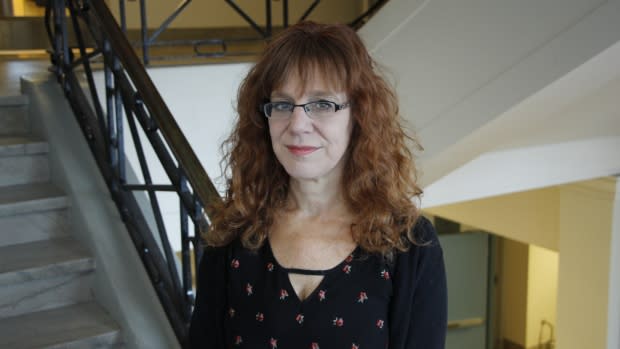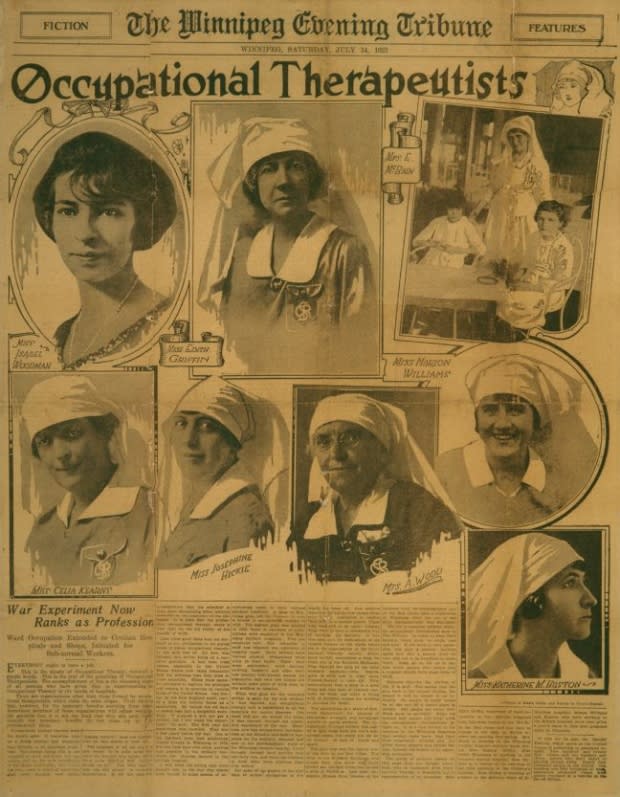Cooking as a prescription for depression? Occupational therapy gains traction in mental health treatment
Lisa Diamond-Burchuk once prescribed cooking to a patient suffering from depression so severe that she couldn't buy groceries.
The veteran occupational therapist said the patient started by making tea and toast, but over time began making all her meals — and buying her groceries.
"When I met with her, she identified cooking as the one activity she missed the most and that used to give her a feeling of satisfaction," said Diamond-Burchuk, who has practised as an occupational therapist for 30 years and teaches at the University of Manitoba.
"With each step and small success she felt better and wanted to take on the next step."
She says prescribing daily activities — such as walking around the block or taking time to garden or paint — can dramatically help patients suffering from severe mental illnesses.
Broadly speaking, occupational therapists use assessment and intervention to help patients overcome injury, disability or other factors to perform daily tasks.
That could mean therapy designed to help with basic activities like dressing or bathing, to improve academic success by working on social or organizational skills, or to provide support for getting back to work after an injury, according to the Manitoba Society of Occupational Therapists.
Increasingly, occupational therapists like Diamond-Burchuk are a resource for patients suffering from mental illness and in search of a solution that reduces, or replaces, medication.

Five years ago, occupational therapists became part of the primary health-care team for some Manitoba patients — a team that also included doctors, nurses, pharmacists and physiotherapists.
Now, 20 occupational therapists work with primary-care teams across the province. Some doctors say it's changed the way they treat patients with severe mental illnesses.
Dr. Ian Whetter, a family physician who practises at the Northern Connections Medical Centre on Winnipeg's Elgin Avenue along with Diamond-Burchuk, says that her expertise has opened his eyes to possibilities.
For people who have been out of work for a long time, Whetter says he's more likely to think of occupational therapy as a way to get them back on the job.
Getting them to work on daily tasks is "really profoundly effective in terms of helping people feel good in the world," said Whetter.
"Now that I know that we've got a team who can sort of take small steps that work for people — and that are safe for people — towards engaging in some meaningful work, then I'm much more likely to ask the question and to refer people [to an occupational therapist]," he said.
Roots in First World War
Although the medical community has only recently come to realize the benefits occupational therapy has for treating mental illness, therapists themselves have practised mental health care since the beginning, said Sharon Eadie, executive director of the College of Occupational Therapists of Manitoba.
Occupational therapy emerged as a profession in the years after the First World War, as soldiers attempted to return to normal working life. Nurses working with wounded soldiers found that performing simple tasks like arts and crafts aided their recovery, as noted in a Winnipeg Evening Tribune article about the new profession in 1923.

"Many soldiers have learned unusual occupations while lying on their backs," the article stated.
"Their beadwork, embroidery, wood carving, knitting, basketry and other work has become well known among the population and very few homes are without some piece of work done by the soldiers in hospital."
The practice had been common in mental hospitals even before this time, but now it was being used more broadly as therapy, as noted in a Maclean's magazine article from 1922.
"Happy hours of pleasant occupation, companionship and sympathy can do wonders for those sick in mind and body," the article stated.

Now, occupational therapists are also working with immigrant and refugee children suffering from trauma.
In August, the department of occupational therapy at the U of M and Bridgecare Clinic adapated a program originally developed for children with sensory processing issues — difficulties organizing and responding to sensory information, which can lead to being oversensitive, or undersensitive, to stimuli.
Called "How Does Your Engine Run?", the adapted program uses arts and crafts to teach children how to recognize how they are feeling, and then teaches them ways of regulating their feelings, to help them in learning situations and in interacting with others.
Increasing access
Some recent developments have made doctors more aware of the potential benefits of occupational therapy for patients with mental illnesses, Eadie said.
Students in university health programs are collaborating more, thanks to education on interprofessional practice. The Physician Integration Network, introduced in Manitoba in 2006, has provided physicians with more information about other professions and how to access them.
There are now more occupational therapists working in social service agencies such as Nine Circles and Siloam Mission, as well as in northern communities such as Thompson.
Due to cuts made as part of the provincial government's ongoing health-care overhaul, occupational therapy that isn't done in a hospital will no longer be covered by Manitoba Health, a provincial spokesperson said.
However, there are occupational therapists embedded in primary health-care clinics and teams, community-based mental health programs and other social service agencies — and those do not require private insurance to access.
Given the increasing numbers of occupational therapists in primary care over the last few years, Diamond-Burchuk expects that access will increase in years to come.
"Private insurance isn't always an option, unfortunately. That's why we're hoping that we'll get more and more of these primary care OTs, so that everyone has access."
